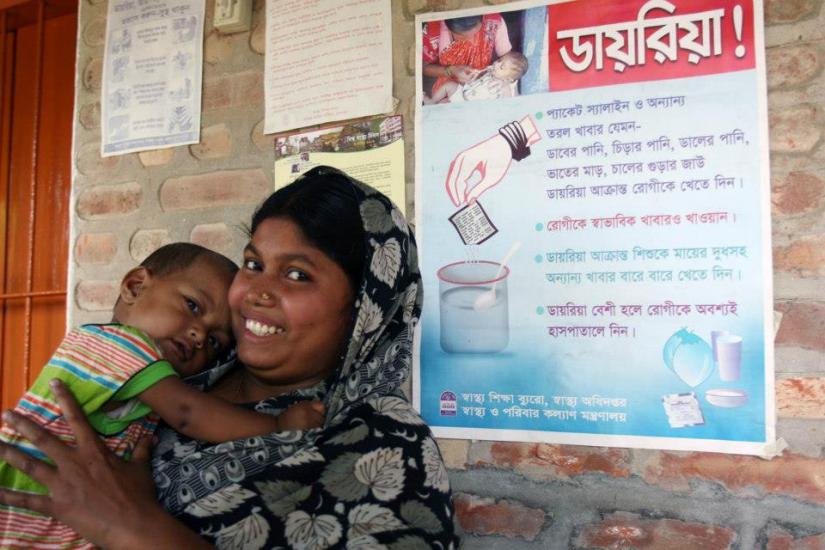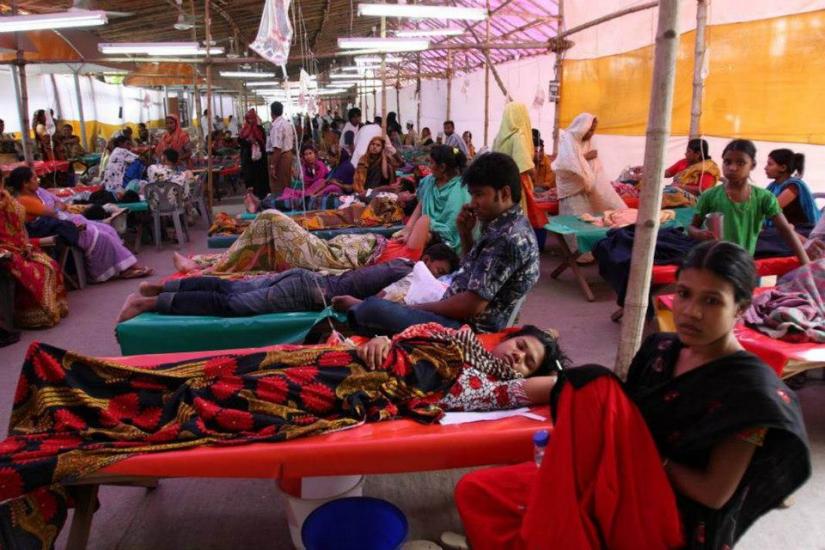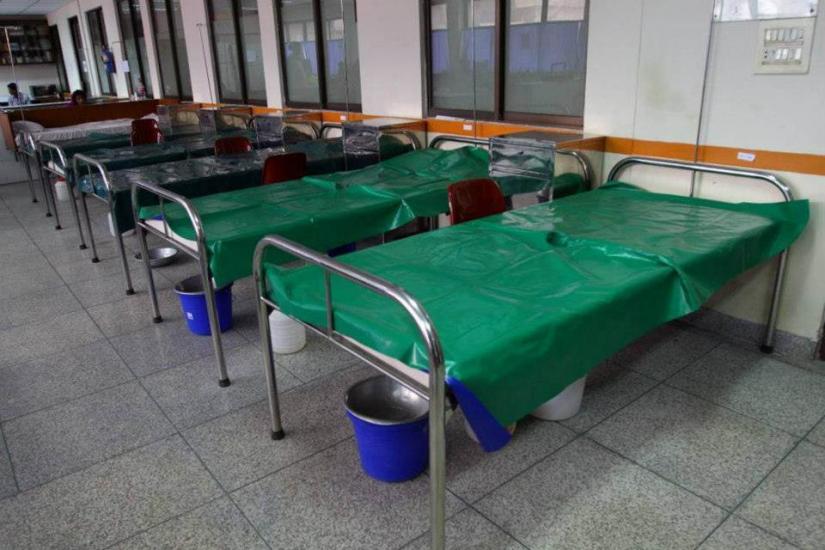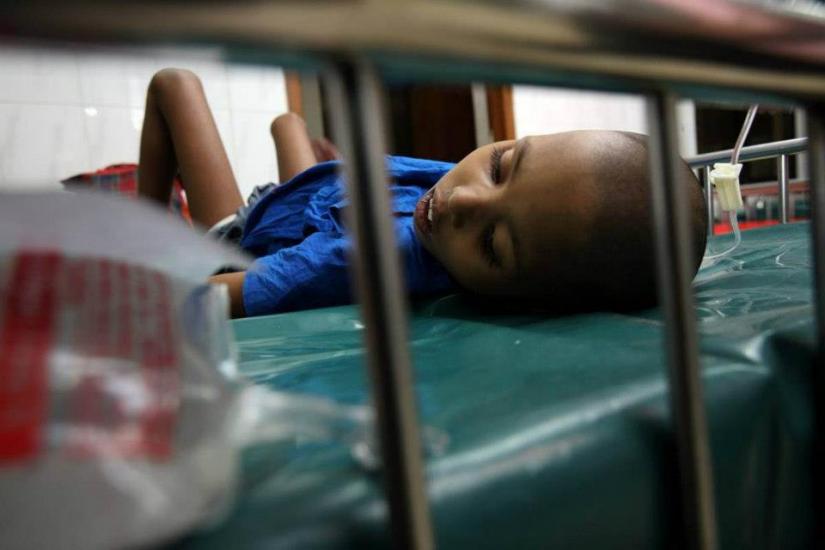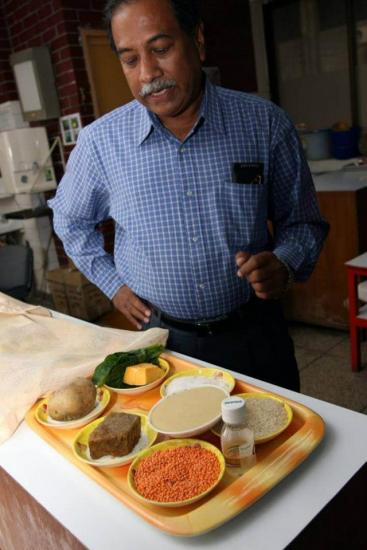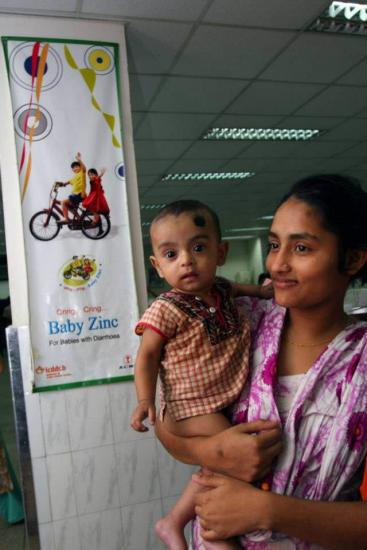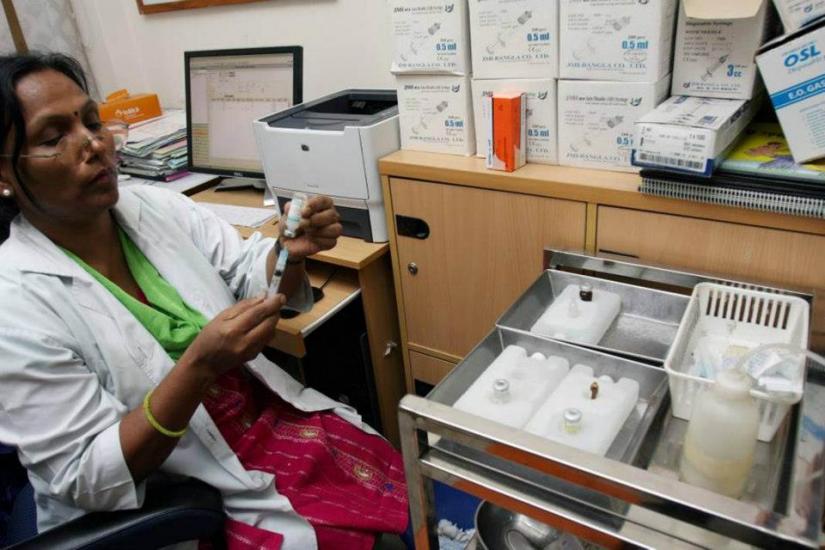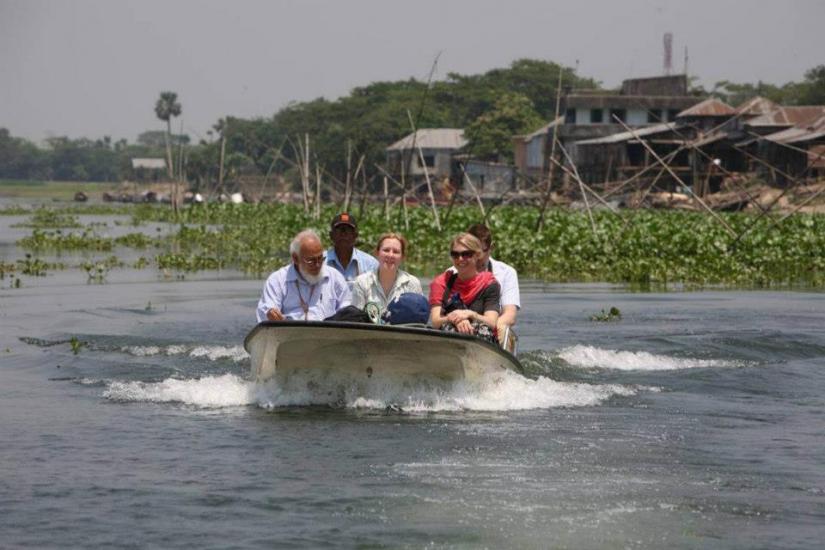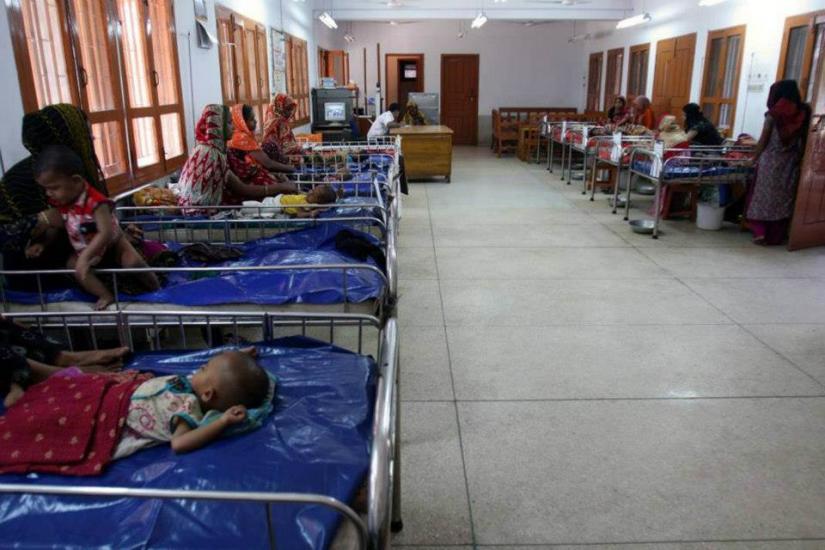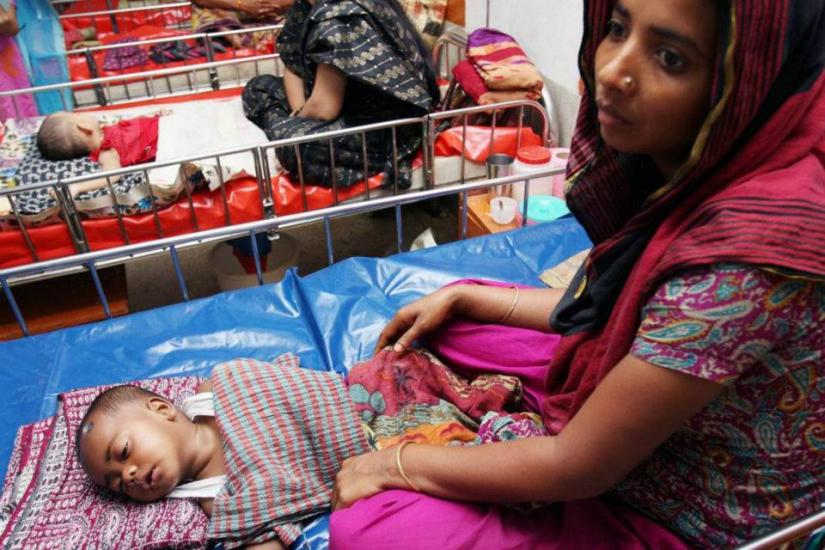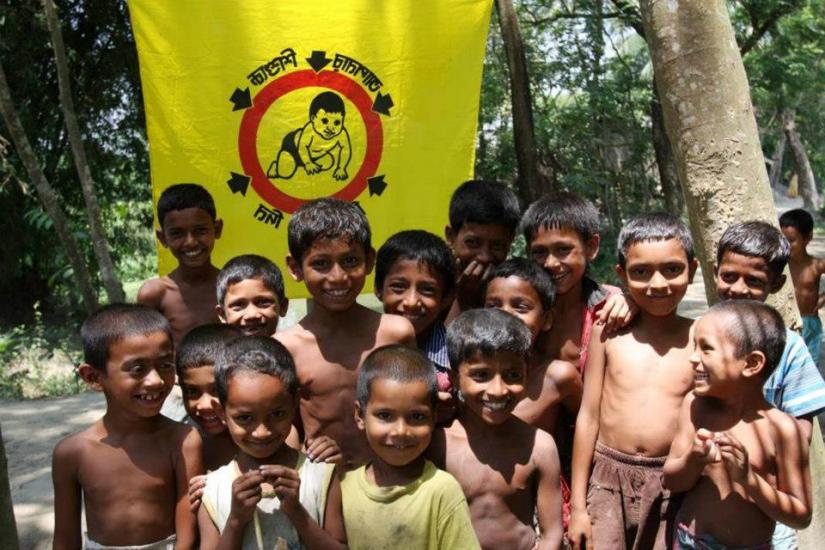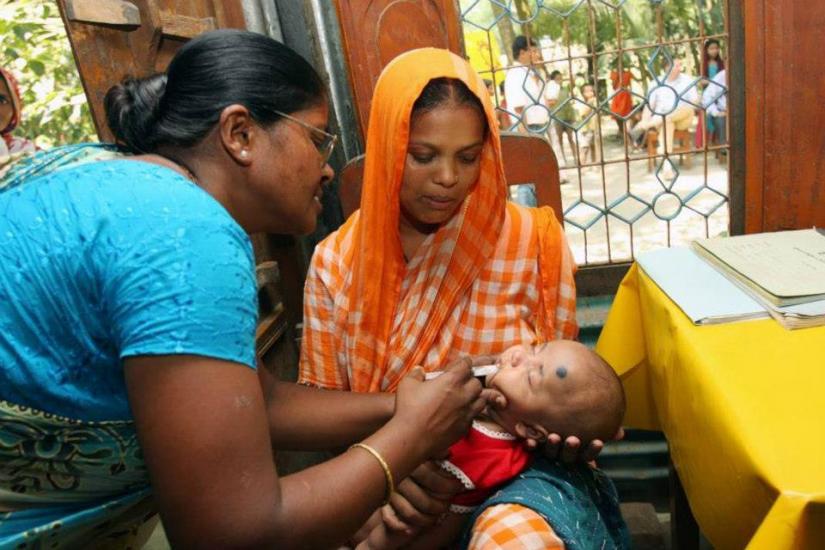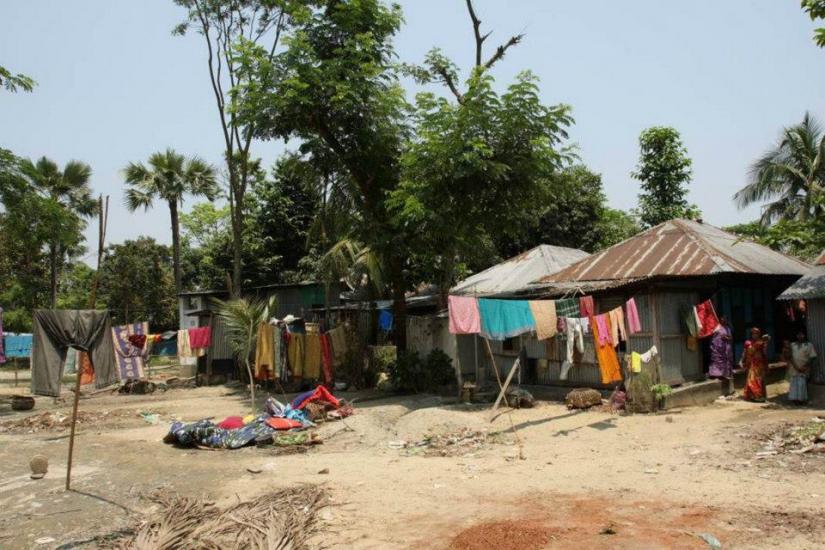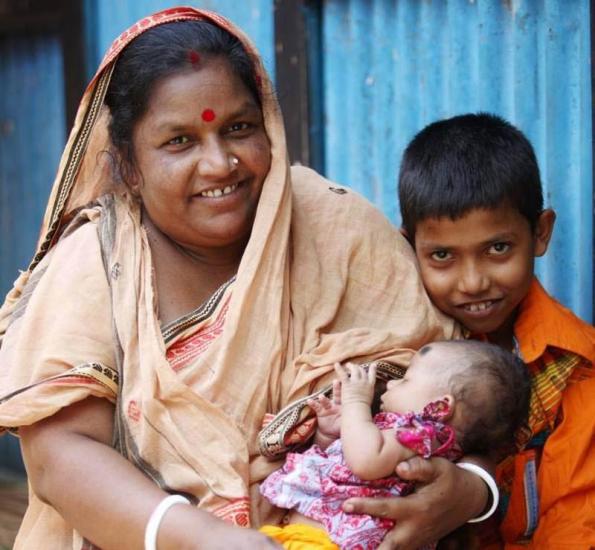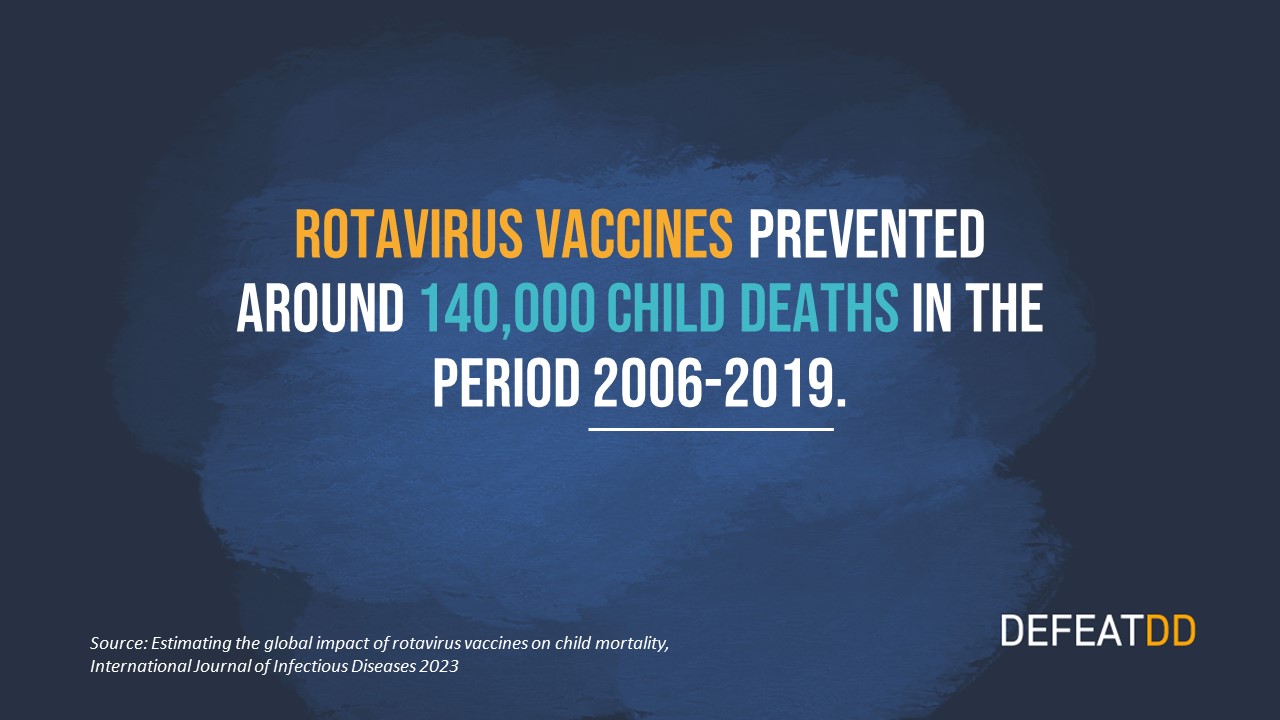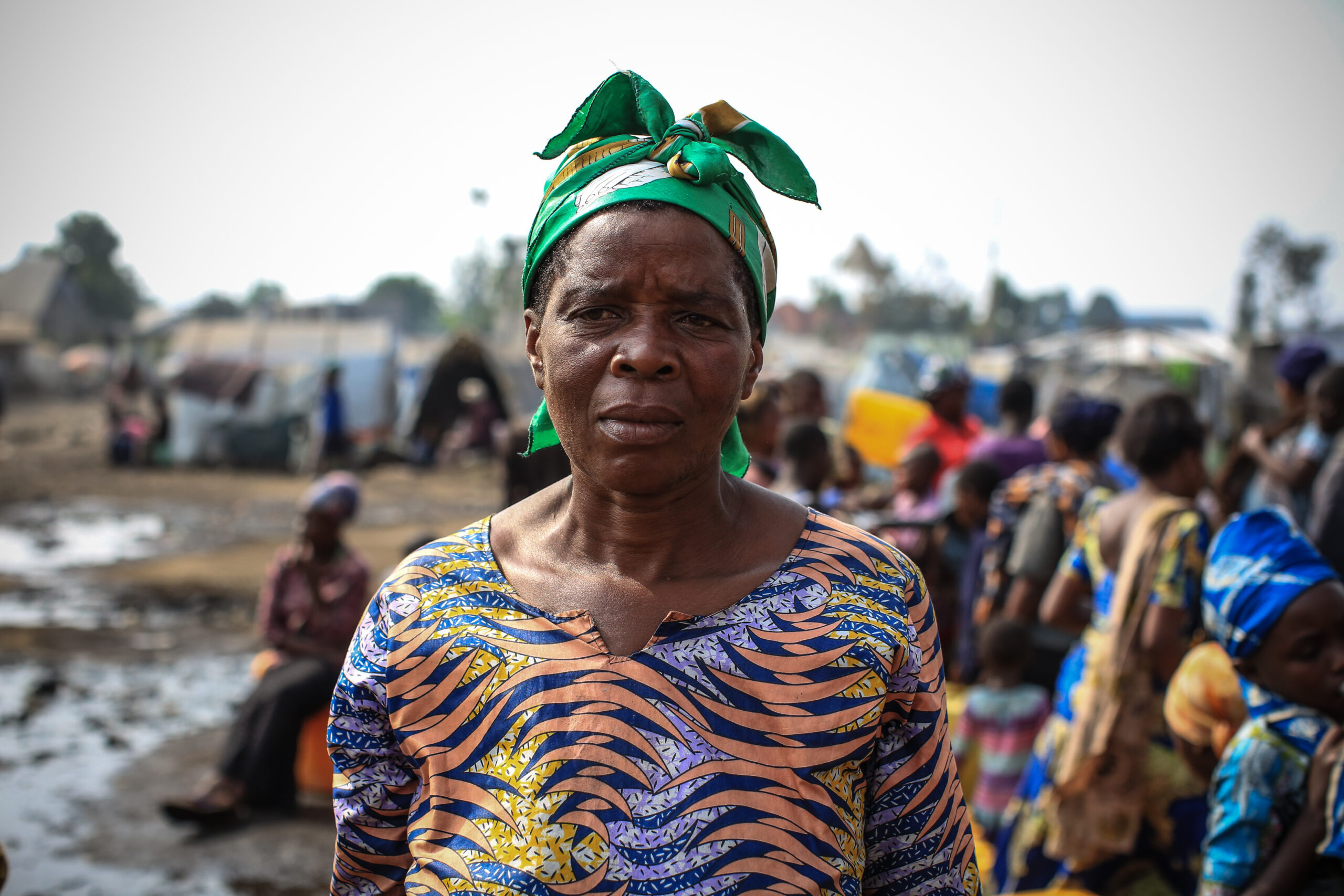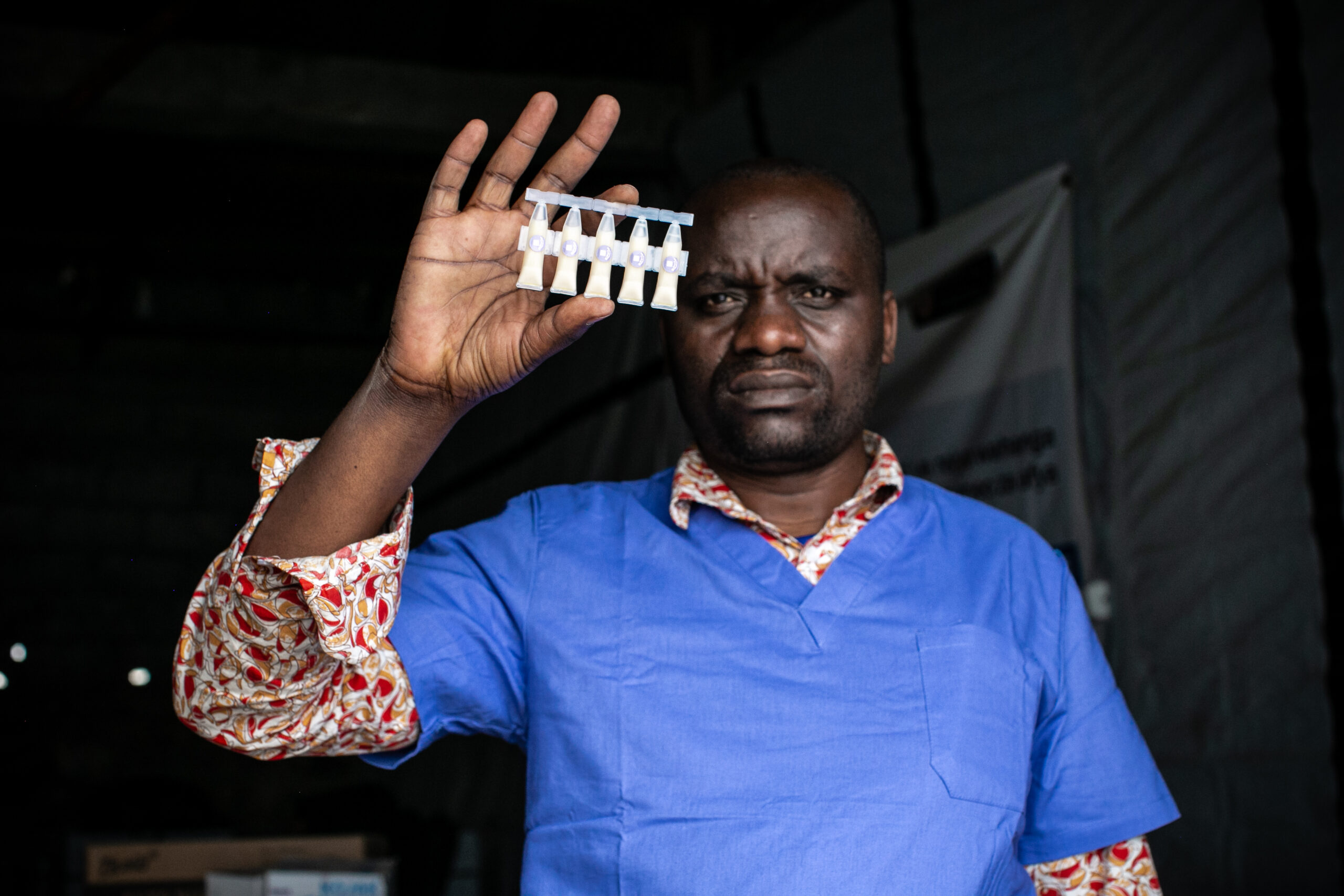Defeating Rotavirus and Diarrheal Disease in Bangladesh
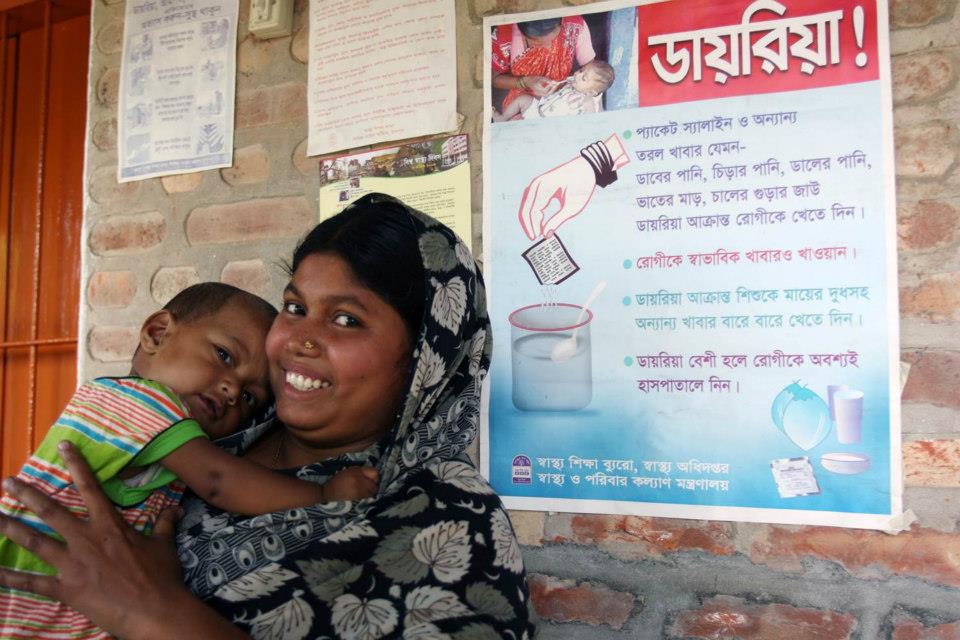
Take a trip with the DefeatDD team, reflecting on a visit to Bangladesh in 2009 to witness a pivotal clinical study of rotavirus vaccine effectiveness in impoverished communities where diarrheal disease is a common killer and access to prevention and treatment are often out of reach. All photos: PATH
We traveled to Bangladesh in 2009 to document a pivotal clinical study of rotavirus vaccines, which promise to be a lifesaving adition to an integrated platform of diarrheal disease solutions.
When we arrived, the capital city of Dhaka was in the grips of a terrible diarrheal disease outbreak, affecting all ages. Poor city systems and unclean water were most likely causing cholera among adults, but medical officers told us that rotavirus was responsible for about 50% or more hospitalizations among infants, most 6-8 months old. For weeks at the hospital of the International Centre for Diarrhoeal Disease Research, Bangladesh (ICDDR,B), upwards of 600 inpatients were admitted daily, yet the hospital has 350 standard beds. Massive tends like this one were set up outside the hospital to handle patient overflow.
The research ward was starlky empty, researchers having taken on the jobs of clinicians to care forh the growing patient load.
Often, inpatients are also suffering from pneumonia. In the special care unit, children are listless, and too weak to cry. [Pneumonia and diarrhea can often be treated comprehensively. Learn more with PATH’s infographic on an integrated approach: http://bit.ly/TIR1gT ]
Dr. Shahadat Hossein, senior medical officer, explained to us how malnutrition was a major problem and, with diarrheal infections, led to a vicious cycle. Malnourished children wre more likely to get severe infections; and very sick children would lose the precious few nutrients they had. When a child is admitted, the ICDDR,B hospital teaches mothers about nutrition and how to make nutritious meals, such as rice porridge with vegetables. “Malnutrition is one of the major problems in our country, making children more vulnerable,’ Dr. Hossein told us. “Diarrhea and malnutrition-it is a vicious cycle.”
Another tool in the fight against this cycle of malnutrition and diarrhea is zinc, which ICDDR,B has been providing to patients since 2006.
If needed, immunizations are provided to children admitted for diarrheal infections. Volunteers go from bed to bed, asking mothers about the immunization status of their children.
Off to the field we go! We traveled by car, then 2 hours or so by speedboat to Matlab, where ICDDR,B has a rural hospital and where villages participating in the clinical trial were located. Learn more about pivotal studies by PATH and our partners to evaluate rotavirus vaccines in developing countries of Asia and Africa: http://bit.ly/TCIL6X
ICDDR,B’s hospital in Matlab sees about 16-17,000 patients pr year, providing treatment free of cost.
Samsunahar and her daughter Rehana, who is 6 months old, have been at Matlab hospital for one day. Rehana had diarrhea and was vomiting at home for 2 days. The doctor advised saline, but the baby’s condition did not improve. They traveled three hours ny auto rickshaw, and Rehana is improving but still only drinking milk. The doctor is fairly sure she has rotavirus, but not every case is sent for laboratory diagnosis. A treatment protocol of zinc, breastmilk, and ORS will be followed. With a vaccine, children like Rehana could be safe from such severe illness.
Vaccination day in Kidirpur village! A banner outside the immunization clinic announces “Give vaccine to your child.”
Vaccinations in this village, or barri, are given one day pr week at the home of the community health worker, who usually serves about 6-7 households. Vaccines are brought the morning of the immunization session by bicycle or rickshaw from Matlab Hospital. Mukta and her son Rihan (2 months) participated in a clinical trial of rotavirus vaccine effectiveness conducted by PATH, ICDDR,B, CDC, and the World Health Organization, funded by the GAVI Alliance. We asked Mukta why she wanted to participate, and she told us, “Rotavirus is very harmful. The vaccine will help our community be safe.”
Kaladi village in a generally urban area of Matlab.
In Kaladi village, this is Shobarani, with her daughter Priti, 2 months old, and her son Shawon, 10 years old. Shawon was very sick with rotavirus when he was a baby, spending one week in the hospital. Today, he is healthy. On vaccinating her new baby against rotavirus, Shobarani says, “It is very important to protect this child.” It was interesting that many mothers we spoke with knew of rotavirus and were every well versed in how to treat their children at home. This makes the impoverished communities of Bangladesh unique among others inAsia, and it reflects the impact of ICDDR,B’s work.


